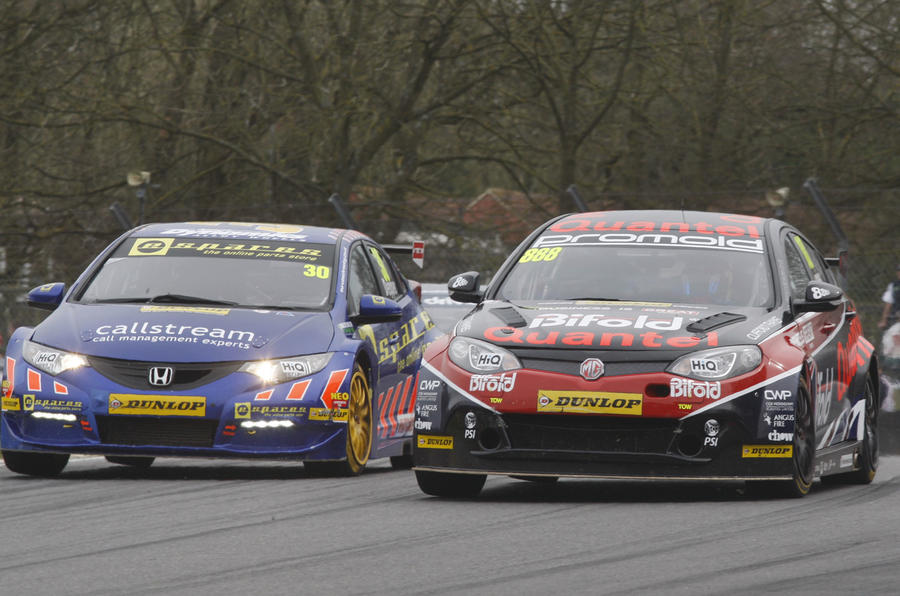With 31 cars due on the grid this season, the circuits that the Dunlop MSA British Touring Car Championship visits are going to be extremely crowded.
During last month’s season-opener at Brands Hatch – the shortest layout the competitors will tackle all season at 1.2 miles – the men at the wheel were all warned by those in charge that there would be ramped up scrutiny on driving standards this season.
With so much at stake and so many competitive drivers, making sure that there is a fair fight is going to be hugely important. But far from being ‘bumper cars’, all contact is heavily scrutinised and there is a solid tariff of censures for drivers who overstep the mark.
As a rule of thumb, a new edict says that if a particular driver causes a rival to be put out of a race through contact – and that driver was solely to blame – then the culprit will be excluded.
It is a no-nonsense approach. Pirtek Racing Honda Civic driver Martin Depper and Quantel BiFold MG 6 man Marc Hynes both fell foul of this new regulation at Brands Hatch.
Similarly, if a driver causes a rival to lose time through a punt, then he will be punished. Aron Smith (Chrome Edition Restart Volkswagen CC) was docked five places on the grid for race two after clumsily elbowing Mat Jackson’s Airwaves Racing Ford Focus out of the way early on in race one.
Jack Clarke (Crabbie’s Racing Ford Focus) was also hit with the same penalty after race three for a collision with Glynn Geddie’s United Autosports Toyota Avensis. That will be carried over until the next three rounds at Donington Park on Easter Sunday.
These penalties aren’t just meted out on the hoof. The BTCC was one of the first racing categories in the world to introduce ‘spy in the cab’ cameras with the sole intent of recording pictures for judicial use.
There are data traces – which accurately record the car’s steering and throttle movements – that can be scrutinised by the series’ officials, and the BTCC also employs the services of former frontrunner Jeff Allam to give a driver’s eye opinion on any controversies. Any incident will be thoroughly investigated before penalties are handed out.
Nor is this an exact science. In the case of multi-car incidents, it is sometimes more difficult to pick out the exact culprit. But with all of the layers of scrutiny put in place, the system is as robust as it can be and there are appeal processes too if the teams feel that they have been hard done by.






Add your comment